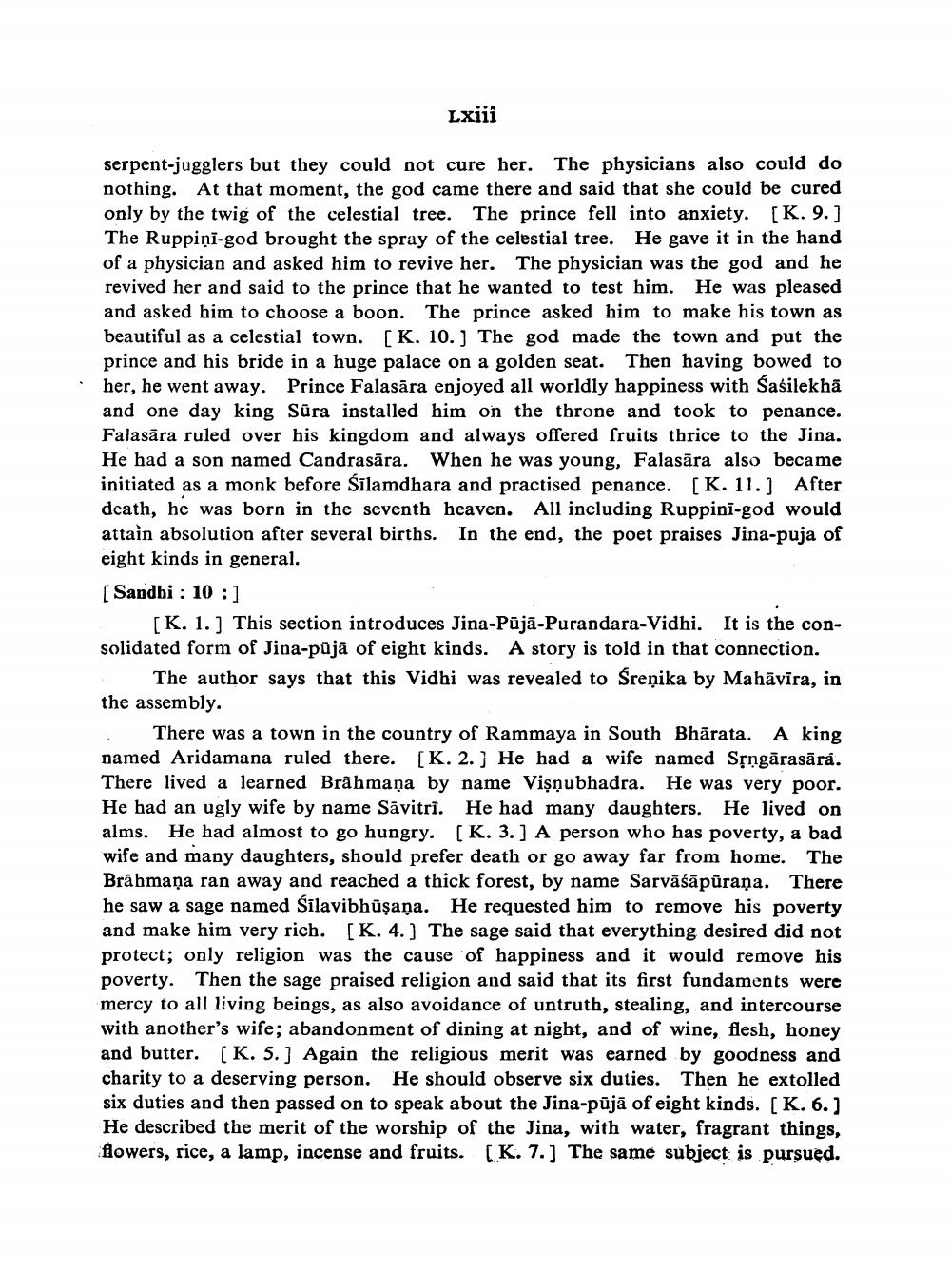________________
Lxiii
serpent-jugglers but they could not cure her. The physicians also could do nothing. At that moment, the god came there and said that she could be cured only by the twig of the celestial tree. The prince fell into anxiety. [K. 9. ] The Ruppiņi-god brought the spray of the celestial tree. He gave it in the hand of a physician and asked him to revive her. The physician was the god and he revived her and said to the prince that he wanted to test him. He was pleased and asked him to choose a boon. The prince asked him to make his town as beautiful as a celestial town. [K. 10.) The god made the town and put the prince and his bride in a huge palace on a golden seat. Then having bowed to her, he went away. Prince Falasāra enjoyed all worldly happiness with Sasilekhā and one day king Sūra installed him on the throne and took to penance. Falasāra ruled over his kingdom and always offered fruits thrice to the Jina. He had a son named Candrasāra. When he was young, Falasāra also became initiated as a monk before Sīlamdhara and practised penance. [K. 11.) After death, he was born in the seventh heaven. All including Ruppinī-god would attain absolution after several births. In the end, the poet praises Jina-puja of eight kinds in general. [ Sandbi : 10 :]
[K. 1.) This section introduces Jina-Pūjā-Purandara-Vidhi. It is the consolidated form of Jina-püjā of eight kinds. A story is told in that connection.
The author says that this Vidhi was revealed to śreņika by Mahāvīra, in the assembly. . There was a town in the country of Rammaya in South Bhārata. A king named Aridamana ruled there. [K. 2.) He had a wife named Sțngārasāra. There lived a learned Brāhmaṇa by name Vişnubhadra. He was very poor. He had an ugly wife by name Sāvitri. He had many daughters. He lived on alms. He had almost to go hungry. (K. 3. ] A person who has poverty, a bad wife and many daughters, should prefer death or go away far from home. The Brāhmaṇa ran away and reached a thick forest, by name Sarvāśāpūraņa. There he saw a sage named śīlavibhūşaņa. He requested him to remove his poverty and make him very rich. [K. 4.) The sage said that everything desired did not protect; only religion was the cause of happiness and it would remove his poverty. Then the sage praised religion and said that its first fundaments were mercy to all living beings, as also avoidance of untruth, stealing, and intercourse with another's wife; abandonment of dining at night, and of wine, flesh, honey and butter. (K. 5.) Again the religious merit was earned by goodness and charity to a deserving person. He should observe six duties. Then he extolled six duties and then passed on to speak about the Jina-pūjā of eight kinds. [K. 6.) He described the merit of the worship of the Jina, with water, fragrant things, flowers, rice, a lamp, incense and fruits. (K. 7.] The same subject is pursued.




